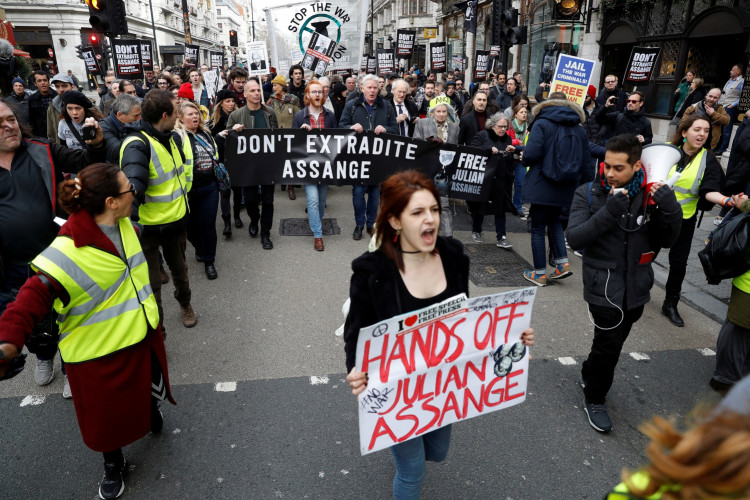WikiLeaks joint founder Julian Assange can't be extradited to the U.S. to face hacking charges, a British judge ruled Monday.
Judge Vanessa Baraitser said she was refusing his extradition because of fears that he might take his own life. The U.S. government has 15 days to appeal.
The Australian faces an 18-count indictment and is accused of illegally hacking into U.S. government websites and leaking documents containing logs on the wars in Afghanistan and Iraq and diplomatic cables in 2010.
His lawyers say he could be jailed for up to 175 years in the U.S. if found guilty. American prosecutors say the sentence is likely to be between four and six years.
In 2010 and 2011, WikiLeaks published hundreds of thousands of leaked documents about the Afghanistan and Iraq wars, as well as diplomatic cables.
His lawyers argued that the prosecution was politically motivated and that he was being pursued because WikiLeaks published U.S. government documents that revealed evidence of war crimes and human rights abuses.
One of the leaks published on the site was a 39-minute video of a U.S. military Apache helicopter firing over and killing more than a dozen Iraqis, including two Reuters news agency journalists.
Kristinn Hrafnsson, WikiLeaks editor-in-chief, said: "The mere fact that this case has made it to court let alone gone on this long is an historic, large-scale attack on freedom of speech.
"The U.S. government should listen to the groundswell of support coming from the mainstream media editorials, NGOs around the world such as Amnesty and Reporters Without Borders and the United Nations who are all calling for these charges to be dropped."
James Lewis, a lawyer representing the U.S. government, told the British court last year: "Reporting or journalism is not an excuse for criminal activities or a license to break ordinary criminal laws,"
Assange is being held in a UK prison. He has been there since being taken from the Ecuadorian embassy in London where he had taken refuge for seven years to escape an extradition request from Sweden where he faced rape accusations.
The charges in Sweden were dropped and Assange has completed the 50-week sentence handed down for skipping bail.
The U.N., who has visited him in prison, has said Assange shows symptoms associated with prolonged exposure to psychological torture and should not be extradited.
On Sunday, Assange's partner's Stella Moris said a decision to allow extradition would be an "unthinkable travesty."
"It would rewrite the rules of what it is permissible to publish here," Moris wrote in the Mail on Sunday. "Overnight, it would chill free and open debate about abuses by our own government and by many foreign ones, too.
"In effect, foreign countries could simply issue an extradition request saying that UK journalists, or Facebook users for that matter, have violated their censorship laws. The press freedoms we cherish in Britain are meaningless if they can be criminalized and suppressed by regimes in Russia or Ankara or by prosecutors in Alexandria, Virginia."






